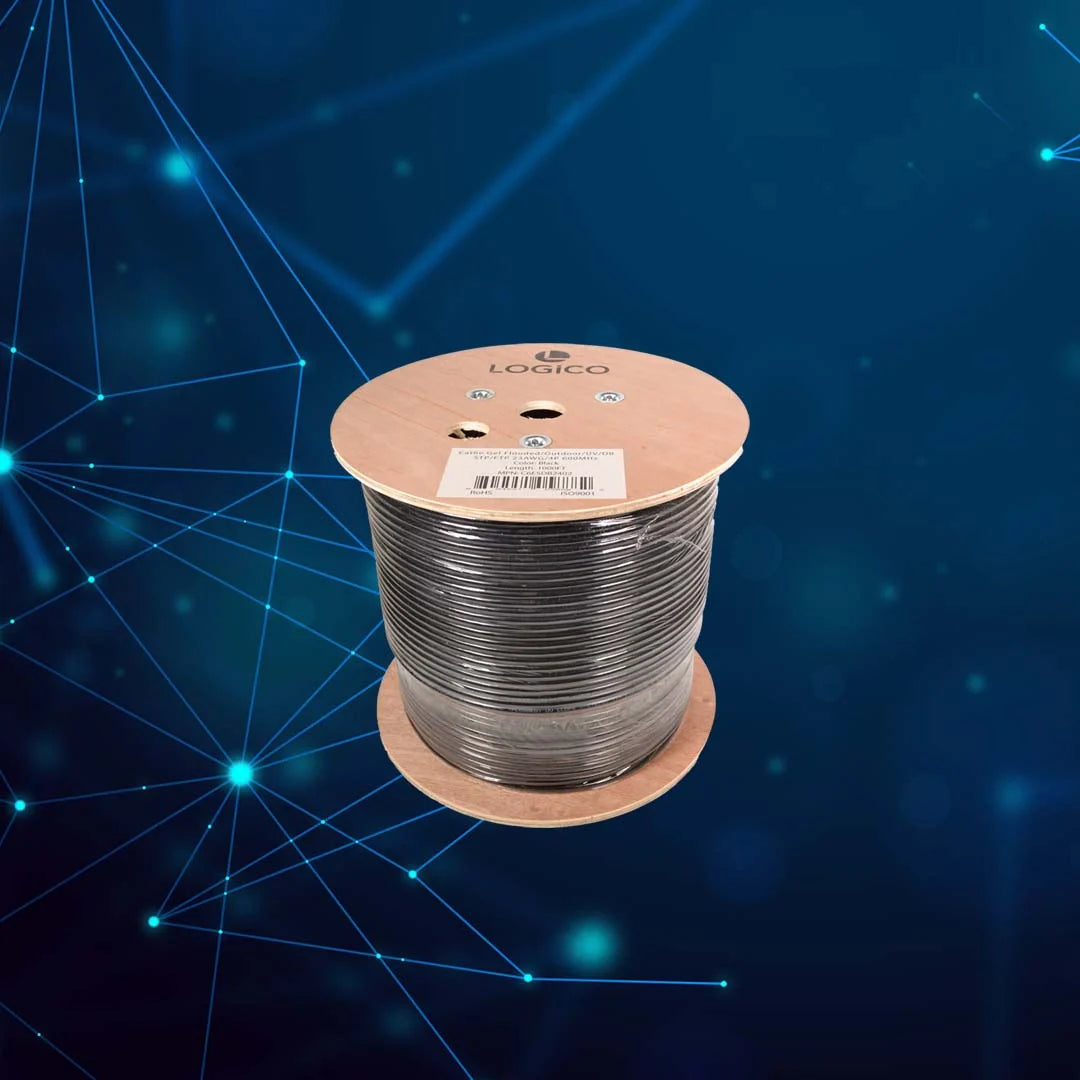You have no items in your shopping cart.

The Evolution of Cables
For decades, traditional copper cables have been the go-to solution for data transmission and power delivery. Copper's excellent conductivity and durability have made it a staple in various industries. However, the rising cost of copper, coupled with increasing demands for sustainable solutions, prompted researchers and engineers to explore alternative materials. This quest for innovation led to the development of Copper-Clad Aluminum cables.
Copper-Clad Aluminum: The Breakthrough
Copper-Clad Aluminum (CCA) cables represent a paradigm shift in cable technology. These cables are crafted by bonding a layer of aluminum to the core of the cable and then cladding it with a thin layer of copper. This ingenious combination leverages the benefits of both materials, resulting in a cable that offers impressive performance at a fraction of the cost of traditional copper cables.
In the world of technology, cables pCCA New Computer Cable Technology Makes Cables Cheaperlay an essential role in connecting devices and transmitting data.
However, traditional cables can be expensive and cumbersome to install, making them less desirable in certain applications. Fortunately, a new computer cable technology called CCA is changing the game.
CCA, or Copper Clad Aluminum, is a type of cable that is made by applying a layer of copper over an aluminum wire. The result is a cable that is both lighter and cheaper than traditional cooper cable without compromising in performance. This technology is not entirely new, but recent advancements in manufacturing processes have made CCA cables even more reliable and cost-effective, one of the biggest advantages of CCA cables is their affordability. Cooper is an expensive material, and cables made entirely of cooper can be prohibitively expensive for many applications. CCA cables, on the other hand, are significantly cheaper due to the reduced amount of cooper used.
This makes them an attractive option for budget-conscious consumers and businesses alike.
Cost-Effectiveness: One of the most compelling advantages of CCA cables is their cost-effectiveness. Copper is a precious metal, and its price fluctuations can significantly impact cable manufacturing costs. By incorporating aluminum, which is more abundant and affordable, CCA cables provide a cost-efficient alternative without compromising on quality.
Conductivity: While aluminum's conductivity is lower than that of copper, the thin layer of copper cladding in CCA cables mitigates this difference. The result is a cable that maintains solid electrical performance while offering substantial savings.
Lightweight: Aluminum is notably lighter than copper, making CCA cables a lightweight alternative for applications where weight is a concern. This characteristic is particularly beneficial in industries like aerospace and automotive, where reducing weight can enhance fuel efficiency and overall performance.
Flexibility: CCA cables are inherently more flexible than their solid copper counterparts. This flexibility makes them easier to install, bend, and maneuver, simplifying cable management and installation processes.
Environmental Impact: The use of Copper-Clad Aluminum cables contributes to a more sustainable future. By reducing the demand for copper, these cables alleviate the environmental pressure associated with copper mining and extraction.
Versatility: CCA technology is not limited to a specific cable type. It can be applied to various cable configurations, including Ethernet cables, power cables, and audio cables, making it a versatile solution for different industries.
The versatility of Copper-Clad Aluminum cables opens the door to a wide range of applications across multiple sectors:
Telecommunications: CCA Ethernet cables offer reliable data transmission for internet connectivity, ensuring smooth communication and data exchange in homes, offices, and data centers.
Consumer Electronics: From charging cables for smartphones and tablets to HDMI cables for high-definition video streaming, CCA technology enhances our everyday tech experiences.
Automotive Industry: The automotive sector benefits from CCA cables due to their lightweight nature, contributing to fuel efficiency and overall vehicle performance. These cables find use in applications such as wiring harnesses and battery connections.
Renewable Energy: CCA power cables play a vital role in renewable energy systems, connecting solar panels and wind turbines to power grids. Their lightweight design and cost-effectiveness make them an attractive option for large-scale energy projects.
Industrial Automation: CCA cables facilitate communication and power delivery in industrial automation processes, ensuring seamless operation and control in manufacturing environments.
Entertainment and Audio: CCA audio cables provide clear sound transmission, making them a preferred choice for professional audio setups, home theaters, and recording studios.
Another advantage of CCA cables is their weight. Because aluminum is lighter than copper, CCA cables are significantly lighter, making them easier to install and transport. This is particularly useful in applications where cables need to be run over long distances or in areas where weight is a concern, such as in aviation and aerospace.
Despite their lower cost and weight, CCA cables are still highly reliable and performant. This is because the copper layer on the outside of the aluminum wire is thick enough to provide adequate conductivity and protect against corrosion. In fact, many CCA cables can match or exceed the performance of traditional copper cables, making them a viable alternative in many applications.
However, it's important to note that not all CCA cables are created equal. Some manufacturers may skimp on the thickness of the copper layer, which can result in reduced conductivity and an increased risk of corrosion. To ensure the best performance and reliability, it's essential to choose high-quality CCA cables from reputable manufacturers.
Despite the numerous benefits offered by CCA cables, some skepticism has surrounded their adoption. Critics often raise concerns about durability and longevity, as aluminum is perceived to be less robust than copper. However, ongoing research and development in CCA cable technology aim to address these concerns, ensuring that the cables meet industry standards for durability and longevity.
CCA cables are a promising new technology that offers significant cost and weight savings without compromising on performance. As manufacturing processes continue to improve, we can expect to see more widespread adoption of CCA cables in a variety of applications. Whether you're a budget-conscious consumer or a business looking to cut costs, CCA cables are definitely worth considering.
